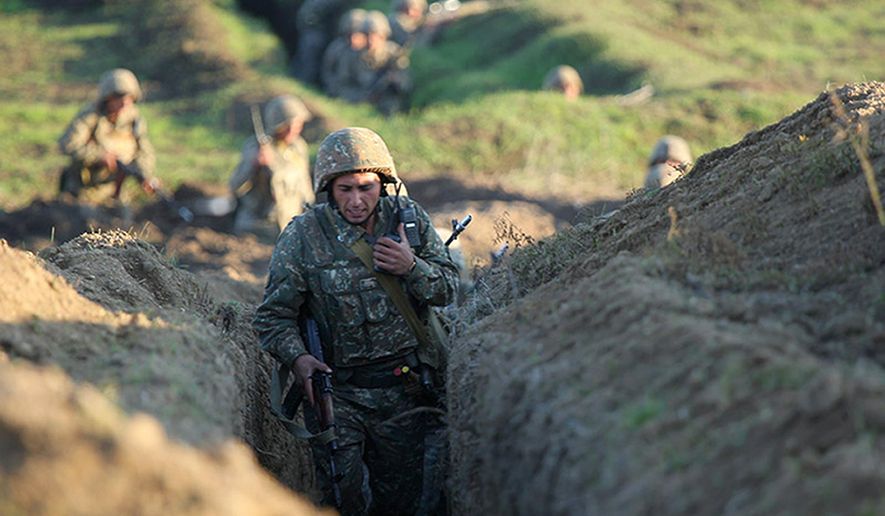Azerbaijani officials warned over the weekend that an escalating military clash between with rival neighbor Armenia could disrupt oil and gas flows from the Caucasus region to Western European markets.
Deadly fighting that broke out last week near the contested enclave of Nagorno-Karabakh has shown little sign of being resolved quickly, setting nerves on edge across the region and beyond over the potential for widening violence.
The two sides fought a war in the 1990s over the enclave, a breakaway region of Azerbaijan. The latest violence represents the worst flareup in years over the frozen conflict, with at least 20 people killed last week in skirmishes that featured the use of heavy artillery and drones between Azerbaijani and Armenian forces.
The Trump administration is calling for calm. Secretary of State Mike Pompeo told reporters last week that the U.S. is “deeply concerned” about the violence. “We urge the sides to de-escalate immediately and re-establish a meaningful dialogue,” he said.
Concerns are also ratcheted up in Europe, since Elshad Nassirov, the vice president of the Azeri state energy company SOCAR, warned over the weekend that energy infrastructure involved in shipping Caspian oil and gas to world markets is located near the fighting.
According to Reuters, Mr. Nassirov said the Baku-Tbilisi-Ceyhan oil pipeline, the Baku-Supsa oil pipeline, the Baku-Tbilisi-Erzrum gas pipeline and some other facilities were located not far from the territory where last week’s clashes took place.
Speaking on a conference call, Mr. Nassirov also referred to the Trans-Adriatic Pipeline, the last stretch of the so-called Southern Gas Corridor which also includes two other pipelines running via Georgia and Turkey. Reuters described the pipeline as important because its completion means the whole corridor will be operational, reducing Europe’s dependence on Russian gas supplies.
Speculation over the prospect of Russian involvement in the current flare up is soaring.
Russian news agencies reported Saturday that the defense ministry in Moscow claimed the Russian military was holding exercises in Russia’s southwestern region — not far from the conflict zone — but denied any connection to the recent clashes.
Analysts say the situation is underpinned by complex regional geopolitics and could escalate in multinational fashion.
“This war between Armenia and Azerbaijan remains unresolved,” warns Stephen J. Blank, a senior fellow with the Philadelphia-based Foreign Policy Research Institute’s Eurasia program.
“A return to outright war could bring Russian forces further into the Caucasus and lead to serious challenges involving Turkey who supports Azerbaijan and Iran who supports Armenia,” Mr. Blank wrote in an analysis published Saturday by RealClearDefense.
It remains to be seen whether the conflict will simmer back to an on-again, off-again stalemate status anytime soon.
The Associated Press has noted that Azerbaijan and Armenia have long been locked in conflict over Nagorno-Karabakh, a region of Azerbaijan that has been under the control of ethnic Armenian forces backed by Armenia since a war there ended in 1994.
International efforts over the years to settle the conflict have stalled.
Armenian and Azerbaijani forces have engaged in past clashes, the news agency noted, adding that the current skirmishes appear to mark the most serious spike in hostilities since 2016 when scores were killed in four days of fighting.
• Guy Taylor can be reached at gtaylor@washingtontimes.com.




Please read our comment policy before commenting.